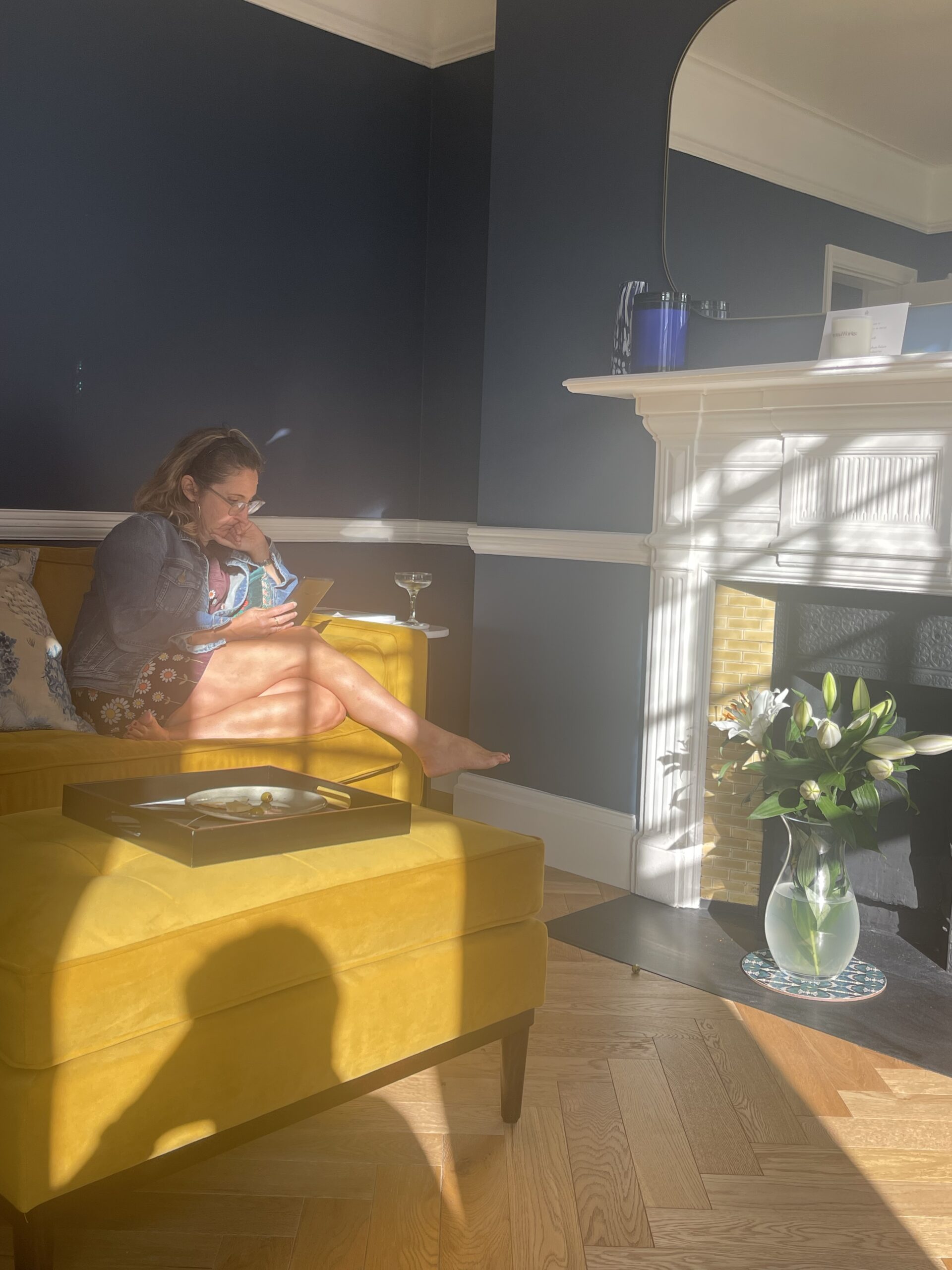I’m apparently really into nautical non-fiction at the moment. THE WAGER, THE MOOR’S ACCOUNT, and now THE WIDE WIDE SEA. It’s the story of Captain Cook’s third and final (fatal) journey of exploration. He was all set to retire too, and no one really understands why he decided to go ‘one last voyage,’ given he was already famous and rich. How could he not see that there was virtually no way, narratively, this wasn’t going to go either tragic or disappointing?
The voyage had two goals, one to find the NorthWest Passage, and the other to return to this young man, Mai, to his home island of Tahiti. This second part was pretty interesting. Mai discovered guns at the business end – by being shot at -when the Europeans landed in Tahiti the first time. He was strongly, strongly in favour. His family had been killed by their enemies on Bora-Bora, and this guy, clearly a total baller, decided to play the long game, i.e., befriend the Europeans, get them to take him to Europe, get European guns, and come back to use them on these bastards from Bora-Bora. To understand his level of fury, let me tell you that apparently it was not uncommon for Bora-Borans to take the dead body of their enemies and “flatten the eviscerated corpse with clubs, then cut a hole through the abdomen, through which the triumphant warrior would insert his head to ‘wear’ his victim as a sort of macabre serape.”
Mai had been living in the UK for some years, mostly on country estates with the wealthy. He rarely visited towns, but when he did ‘the poverty and hunger he encountered while on brief visits to . . . upset him; he’d seen nothing like it in the land of tropical plenty that was Tahiti.” He was admired for his quick learning of English, and his freedom with the language; ice was ‘stone water,’ a wasp that stung him was a ‘solider bird.’ One day when offered snuff he politely replied ‘No thank you, the nose not hungry.’
When Cook finally drops him off, he struggles to reacclimatize of course, and the gun thing doesn’t really work out because the intra-island battles have moved on. The author, bizarrely, says a bunch of stuff about how sorry he is for Mai, who he feels is ‘doomed . . . to a jumbled, deracinated existence,’ because he has moved around so much and seen so much. Has this guy never been to London? About half the population are from elsewhere and I don’t note us all in despair at our jumbled lives.
I was interested to learn that Cook’s achievements were not just geographical but culinary. I knew scurvy was a bad disease, but did not realize that “ It was generally assumed that scurvy would kill off half the crew members on any lengthy expedition.” The causes of scurvy were not understood till the 1950s, but Cook dreamed up a diet for his sailors which prevented it – his first voyage was three years and they did not lose a single person to the illness, which made him famous and was a huge breakthrough for British imperialism.
Anyway, he ends up being killed by some locals on a beach in Hawaii. An interesting story.

